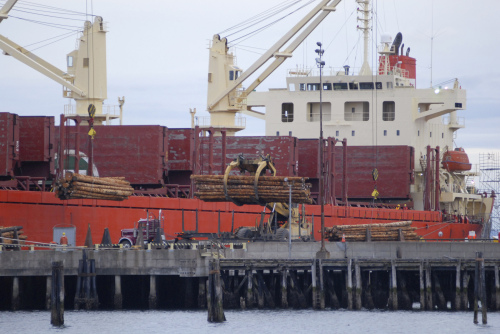WASHINGTON (AP) ― The world’s biggest economies are recovering from the Great Recession at troublesome speeds: too fast or too slow.
China, India and other major developing countries quickly returned to breakneck rates of growth after escaping the worst of the economic downturn in 2008 and 2009. Their rapid recoveries showed for the first time that emerging economies have grown big and strong enough to thrive independently while the United States and other rich countries struggle.
And today, to an unprecedented degree, the developing world is driving the global recovery, instead of relying on the United States for economic leadership as it used to. This picture emerges from the Associated Press’ new Global Economy Tracker, a quarterly analysis of 22 countries that account for more than 80 percent of the world’s economic output.
The shakeup in the world’s economic order has taken 30 years. The developing world’s share of global economic output has risen from 18 percent in 1980 to 26 percent last year, the World Bank says. So growth in emerging markets now has a far bigger effect on the world’s economic performance.
Leading the transformation is China, an economic backwater three decades ago that last year replaced Japan as the world’s second-biggest economy. Japan, after more than a decade of stagnation, is struggling again in the aftermath of the earthquake and nuclear disaster that struck earlier this month.
Rapid growth in emerging economies has lifted hundreds of millions of people out of poverty and created vast consumer markets for U.S. goods and services. At the same time, “this two-track world poses some unusual risks,” warns Nobel Prize-winning economist Joseph Stiglitz of Columbia University. He and others fear that too much money flowing to developing economies is driving up commodity prices and inflating dangerous bubbles in emerging market stocks and housing prices.
China, India and other major developing countries quickly returned to breakneck rates of growth after escaping the worst of the economic downturn in 2008 and 2009. Their rapid recoveries showed for the first time that emerging economies have grown big and strong enough to thrive independently while the United States and other rich countries struggle.
And today, to an unprecedented degree, the developing world is driving the global recovery, instead of relying on the United States for economic leadership as it used to. This picture emerges from the Associated Press’ new Global Economy Tracker, a quarterly analysis of 22 countries that account for more than 80 percent of the world’s economic output.
The shakeup in the world’s economic order has taken 30 years. The developing world’s share of global economic output has risen from 18 percent in 1980 to 26 percent last year, the World Bank says. So growth in emerging markets now has a far bigger effect on the world’s economic performance.
Leading the transformation is China, an economic backwater three decades ago that last year replaced Japan as the world’s second-biggest economy. Japan, after more than a decade of stagnation, is struggling again in the aftermath of the earthquake and nuclear disaster that struck earlier this month.
Rapid growth in emerging economies has lifted hundreds of millions of people out of poverty and created vast consumer markets for U.S. goods and services. At the same time, “this two-track world poses some unusual risks,” warns Nobel Prize-winning economist Joseph Stiglitz of Columbia University. He and others fear that too much money flowing to developing economies is driving up commodity prices and inflating dangerous bubbles in emerging market stocks and housing prices.

Rapid growth in the developing world is also pulling jobs and investment from the United States and other rich countries. And it’s fanning international disputes over trade and currencies.
The AP Global Economy Tracker found that:
― The fastest-growing countries ― Argentina, China, India ― are all in the developing world. The slowest are all European: Spain, Britain, France. The United States ranks 12th among the 20 largest economies plus Argentina and South Africa.
― Speedy growth is triggering inflation in emerging countries. The countries where consumer prices rose the most last year were Argentina, India and Russia.
― High unemployment is plaguing rich countries. At the end of 2010, unemployment was more than 20 percent in Spain, 9.6 percent in the European Union as a whole and 9.4 percent in the United States. (The U.S. rate fell to 9 percent in January and 8.9 percent in February). In contrast, the unemployment rate was 5.3 percent in Brazil.
In the past, the developing world depended on advanced economies ― particularly the United States ― to generate global growth, which trickled down to them when the rich countries bought their exports. And when rich countries faltered, poorer ones suffered too.
“The conventional wisdom was when we went into recession, they went into recession,” says Robert Lawrence, professor of trade policy at Harvard University’s Kennedy School of Government.
The Great Recession overturned the old relationship. Emerging economies dodged the housing crisis that froze credit markets in the United States and Europe and threw the rich world into the worst downturn since the 1930s. Developing countries just kept growing, though more slowly.
They never had to bail out their banks or endure the high unemployment and stagnant growth that historically follow financial crises. India’s heavily regulated banks never made disastrous bets on the U.S. subprime mortgage market.







![[KH Explains] How should Korea adjust its trade defenses against Chinese EVs?](http://res.heraldm.com/phpwas/restmb_idxmake.php?idx=644&simg=/content/image/2024/04/15/20240415050562_0.jpg&u=20240415144419)










![[Today’s K-pop] Stray Kids to return soon: report](http://res.heraldm.com/phpwas/restmb_idxmake.php?idx=642&simg=/content/image/2024/04/16/20240416050713_0.jpg&u=)